Notes for episode number 101 – Exam 25 Exam 25 ... - Libsyn
Notes for episode number 101 – Exam 25 Exam 25 ... - Libsyn
Notes for episode number 101 – Exam 25 Exam 25 ... - Libsyn
Create successful ePaper yourself
Turn your PDF publications into a flip-book with our unique Google optimized e-Paper software.
Don’t worry if you don’t succeed the first time because most Lithuanians will say it like that…<br />
It’s okay, you need just some more practice and soon you will be able to say it like this:<br />
Šešios žąsys su šešiais žąsyčiais<br />
Good luck!<br />
Prašom, Mylimoji! Hi there, I’m Raminta and I’m Raminta’s husband, Jack and welcome back to<br />
Lithuanian Out Loud where we offer the world the Lithuanian language. Today we’re in the month of July<br />
which in Lithuanian is Liepa.<br />
An old Lithuanian tradition says if you light anything with a candle, a sailor dies. Why? Long ago in<br />
winter months sailors didn’t have much of an income and some sold matches to make ends meet. So, if<br />
you light something with a candle, you’re cheating a poor sailor out of his paycheck.<br />
Have you ever heard of this, Dear?<br />
pradėkime, let’s get started<br />
In past <strong>episode</strong>s we practiced a lot of possession using the genitive case or kilmininkas such as the man’s<br />
name, vyro vardas or the dog’s water, šuns vanduo.<br />
Today we’ll tackle the genitive in the plural such as the children’s dog, or a dog which belongs to many<br />
children, a children’s doctor, or a doctor who treats many children, a children’s book, the men’s restroom,<br />
the women’s team, women’s health.<br />
You’ll be happy to know it’s easily learned with little study. On this <strong>episode</strong> we’ll focus on masculine<br />
nouns, feminine nouns on a later <strong>episode</strong>.<br />
Masculine nouns end like this…<br />
-as changes to <strong>–</strong>ų<br />
-is changes to <strong>–</strong>ių<br />
-ys changes to <strong>–</strong>ių<br />
-us changes to <strong>–</strong>ų<br />
-ius changes to <strong>–</strong>ių<br />
and<br />
-uo changes to <strong>–</strong>enų<br />
The most important thing to remember here is that the plural genitive always ends in -ų<br />
Be<strong>for</strong>e we get started, here’s some new vocabulary.<br />
prašom pakartoti…<br />
vocabulary <strong>–</strong> žodynas<br />
when doing žodynas <strong>–</strong> once slow, once normal speed<br />
(here Raminta accidently reads <strong>episode</strong> notes not meant <strong>for</strong> the audience)<br />
basketball krepšinis<br />
basketball krepšinis<br />
health sveikata<br />
health sveikata<br />
music muzika<br />
the music muzika<br />
tradition tradicija<br />
tradition tradicija



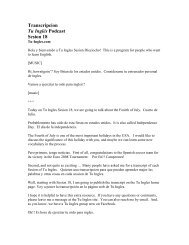

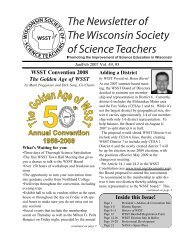

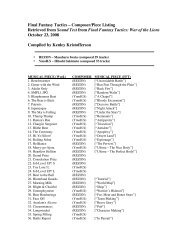
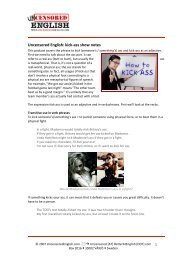

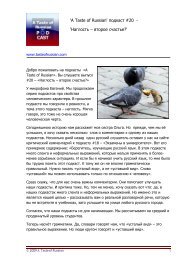
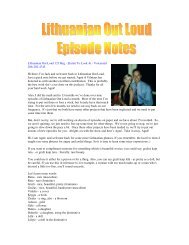


![[Las respuestas empiezan en la pagina 8 ] Tu Inglés ... - Libsyn](https://img.yumpu.com/18098853/1/190x245/las-respuestas-empiezan-en-la-pagina-8-tu-ingles-libsyn.jpg?quality=85)
